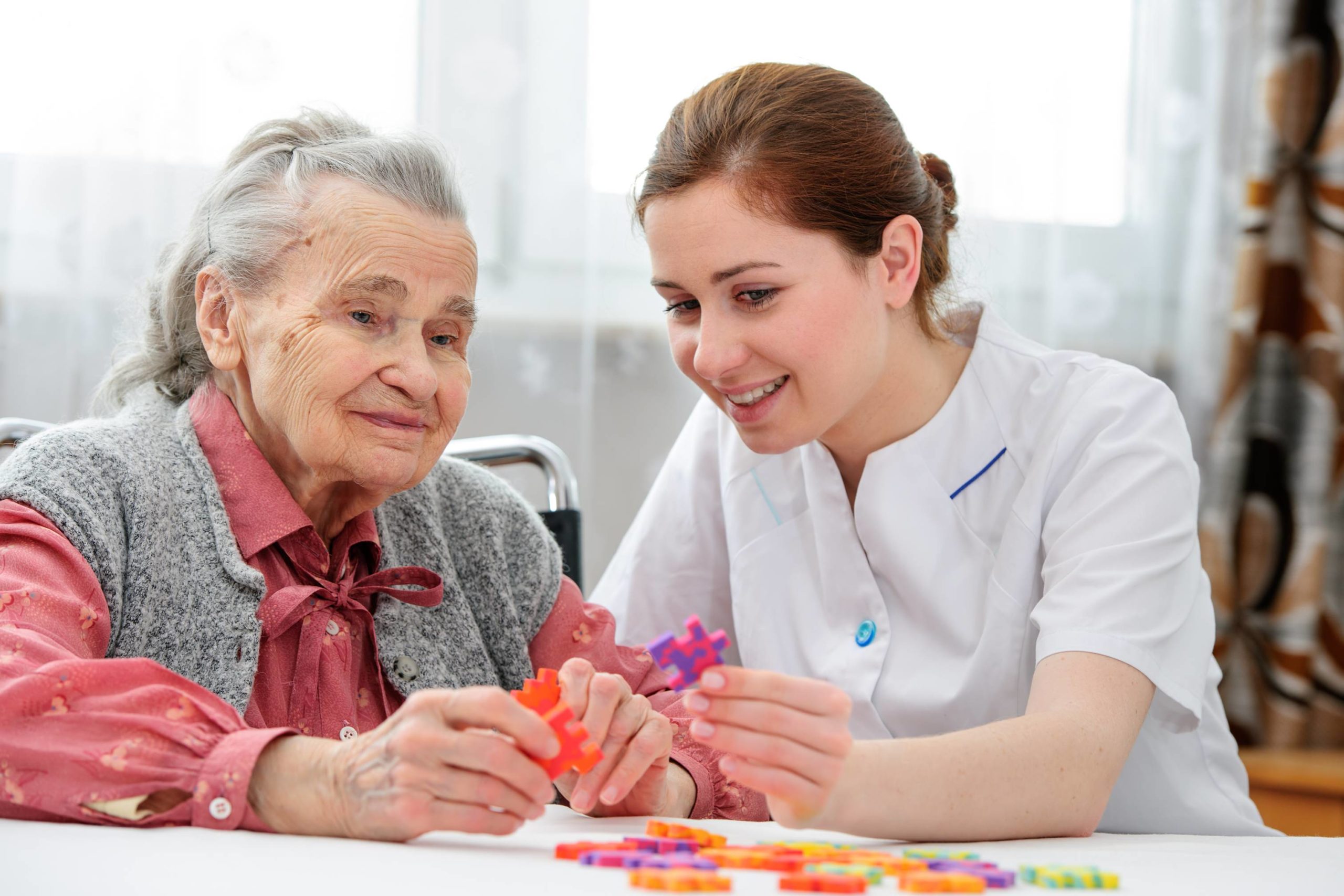Discover the Best Memory Care Facility Charlotte: Tailored Support for Your Loved Ones
Discover the Best Memory Care Facility Charlotte: Tailored Support for Your Loved Ones
Blog Article

Comprehending Dementia Treatment: A Guide for Loved Ones
The intricacies of dementia treatment call for a nuanced understanding that expands past basic knowledge of the condition itself. As we explore these vital parts, it comes to be evident that the journey of comprehending dementia care is not just about the specific affected, yet also about the complex characteristics that shape their experiences and partnerships.
What Is Mental deterioration?
Mental deterioration is a cumulative term that incorporates a variety of cognitive disabilities defined by a decline in memory, thinking, and social capabilities severe sufficient to disrupt everyday life. It is not a specific condition but rather an umbrella term that includes numerous sorts of cognitive disorders, with Alzheimer's condition being one of the most widespread. Other kinds consist of vascular dementia, Lewy body mental deterioration, and frontotemporal dementia, each with distinct attributes and underlying reasons.
The beginning of dementia usually involves progressive cognitive decrease, impacting the individual's capacity to carry out day-to-day tasks and engage meaningfully with others. These disabilities can materialize as troubles with communication, analytical, and judgment. As dementia progresses, people may experience changes in state of mind and habits, which can even more complicate their treatment and social interactions.
Comprehending dementia is necessary for households, caregivers, and medical care professionals to provide ideal support and treatments. Early medical diagnosis and intervention can help handle symptoms and improve the lifestyle for those impacted. In addition, it fosters a deeper understanding of the challenges faced by people with dementia, highlighting the value of caring treatment and support throughout their journey.
Acknowledging the Symptoms
Identifying the symptoms of dementia very early is critical for reliable treatment and assistance - memory care facility charlotte. Dementia encompasses a variety of cognitive problems that can show up in various methods, frequently hindering daily performance and lifestyle. Usual very early signs and symptoms include memory loss, specifically failing to remember recent events or discussions, which might at first be dismissed as regular aging
As the condition advances, people may exhibit difficulties with problem-solving, preparation, or finishing acquainted jobs, such as handling financial resources or adhering to a recipe. Complication about time or location usually emerges, causing disorientation and stress and anxiety. Changes in state of mind and behavior are likewise significant indicators; individuals might come to be withdrawn, short-tempered, or display passiveness towards tasks when enjoyed.
It is vital to approach these monitorings with sensitivity and understanding, as they can be traumatic for both the specific and their liked ones. Prompt focus to these indications can lead to much better outcomes and support for those affected by dementia.
Reliable Interaction Approaches

Non-verbal cues play a vital role in interaction. Maintaining eye get in touch with, using her response proper faces, and using gestures can assist share your message better. Additionally, producing a distraction-free setting Recommended Reading can better assist in significant communications.
Energetic listening is important; offer the person adequate time to react without interrupting. Validate their feelings and experiences, which promotes trust fund and motivates open dialogue. When going over acquainted subjects or memories, make use of prompts to direct the discussion, helping them feel engaged and valued.
Last but not least, be prepared to adjust your approach based on the individual's current cognitive state. Versatility in interaction approaches ensures that you continue to be linked, enhancing the value of your connection. By executing these techniques, you can produce a supportive ambience that urges positive communications with people affected by dementia.
Developing a Supportive Setting
Developing a supportive environment is essential for improving the quality of life for people with dementia. This environment should prioritize convenience, safety, and familiarity to minimize anxiety and complication. Begin by lessening potential dangers; get rid of tripping barriers, secure rugs, and make sure that lighting is sufficient. Clearly mark areas and locations with signs or signs to assist navigating.
Incorporating regimens can supply a feeling of stability. Predictable timetables assist individuals with mental deterioration comprehend what to anticipate throughout the day, consequently decreasing feelings of disorientation. Individualizing the home with familiar things, photos, and keepsakes can evoke favorable memories and create a feeling of belonging.
Additionally, consider the sensory elements of the environment. Soft shades, relaxing fragrances, and gentle audios can contribute to a peaceful environment. Equilibrium stimulation to stay clear of overwhelming the individual; silent areas for leisure should match more active areas for social communication.
Self-Care for Caregivers
Sustaining individuals with mental deterioration requires not only a well-structured setting however additionally attention to the health of caretakers. Caregivers often deal with psychological, physical, and psychological difficulties that can result in fatigue if not correctly attended to. Focusing on self-care is essential to maintain their wellness and effectiveness in offering care.
First, caregivers need to develop a normal routine that includes time for individual tasks and leisure. Taking part in hobbies, workout, or merely taking a walk can anchor substantially ease anxiety. It is crucial to maintain a well balanced diet regimen and make certain appropriate sleep to enhance physical resilience.
Additionally, caregivers need to seek social support. This can be completed by signing up with support groups, involving with close friends, or talking with family participants regarding their feelings and experiences. Such links assist caretakers feel much less isolated and offer valuable psychological outlets.
Finally, caregivers ought to not hesitate to seek specialist assistance when required. Consulting mental health and wellness professionals can help in creating coping techniques and offer devices for managing the psychological toll of caregiving. By proactively exercising self-care, caretakers can improve their wellness, ultimately benefiting both themselves and the people they care for.
Final Thought
In conclusion, comprehending dementia care is important for enhancing the lifestyle for individuals influenced by this problem. Recognizing very early signs and symptoms, using effective communication techniques, and promoting an encouraging environment are important elements of thoughtful caregiving. Additionally, prioritizing self-care for caregivers guarantees their health, eventually benefiting both caregivers and those getting treatment. By cultivating persistence and understanding, significant connections can be developed, assisting in a much more positive experience for all entailed in the caregiving journey.
As we explore these vital components, it becomes obvious that the journey of recognizing mental deterioration care is not simply regarding the specific affected, but also regarding the intricate characteristics that shape their relationships and experiences. Other types include vascular mental deterioration, Lewy body mental deterioration, and frontotemporal dementia, each with distinctive attributes and underlying reasons.
As dementia advances, people may experience changes in state of mind and behavior, which can additionally complicate their treatment and social interactions.
In addition, it fosters a deeper understanding of the obstacles faced by individuals with dementia, highlighting the relevance of compassionate care and assistance throughout their journey.
In final thought, recognizing mental deterioration care is crucial for improving the top quality of life for people affected by this problem. (memory care facility charlotte)
Report this page